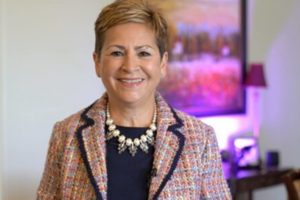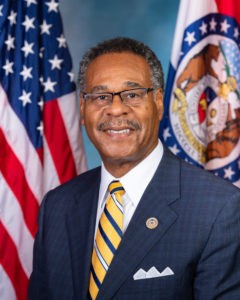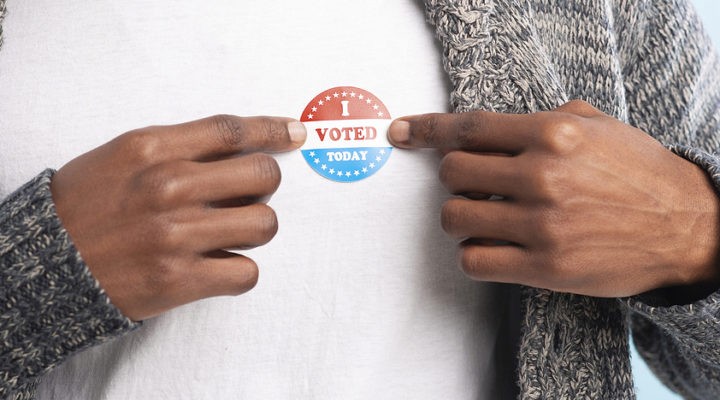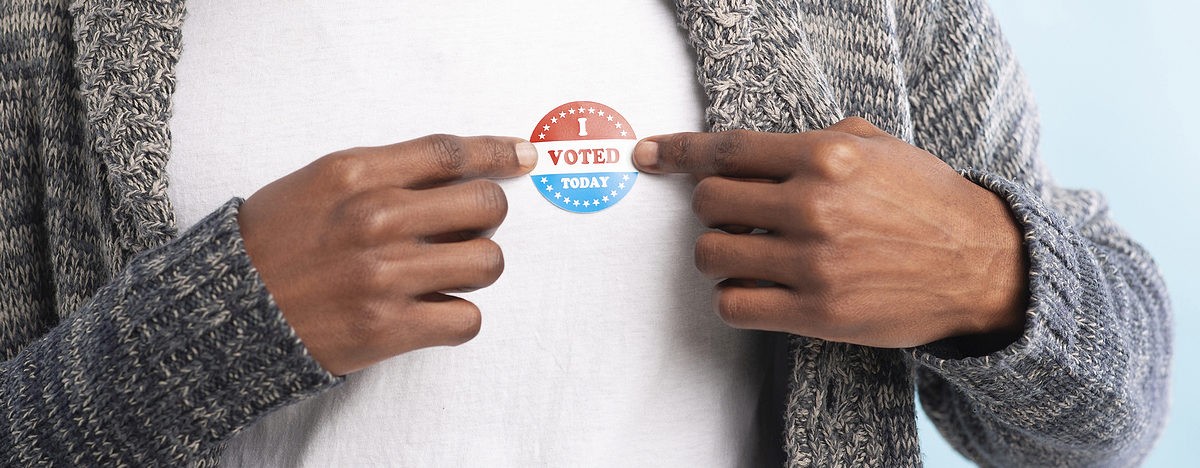While still uncertain of their own institutional future, United Methodist leaders recently called on clergy and church members to vote in the 2020 U.S. presidential election in order to “protect democracy.”
Although some in pew and pulpit complain that their church leaders are meddling in politics, leaders themselves assert that Christians have a duty to defend voting rights as an expression of humans’ equality before God.
The bishops’ letter
The specter of election skullduggery via voter suppression galvanized United Methodist bishops in the United States to issue a rare letter Oct. 12 calling on all American church members and clergy to register and vote. The statement from 50 bishops based in the United States underscores how closely The United Methodist Church parallels the institution of American government, even though it considers itself a worldwide denomination.

Cynthia Fiero Harvey, current president of the UMC Council of Bishops. (Photo: UMC News Service)
Bishop Cynthia Fiero Harvey, current president of the Council of Bishops, stressed the unusual nature of the statement in a press release: “We are not speaking for the church, but to the church, in this context. In our journey toward dismantling racism, a core practice is the history of voter suppression and the encouragement of the right to vote. We seek to ground this in our tradition and in the present moment.”
Titled “A Crisis of Faith and Democracy,” the statement opens: “A faithful retelling of the story of Methodism in America and the history of the United States must consider the influence of each on the other. They came into being alongside one another, and similarities in development of the two are undeniable. The narrative includes noble ideals and shameful actions, astonishing opportunity and disturbing discrimination, ethical vision and moral failure.
“Our church and our nation are both democratic institutions. Through a system of conferences, from the local church to a global assembly, Methodists discuss, debate, and vote in order to discern the will of God. The Social Principles of The United Methodist Church affirm that we ‘hold governments responsible for the protection of the rights of the people to free and fair elections.’”
So closely aligned are The United Methodist Church and American government that the two are structured similarly with three branches: an executive branch (the Council of Bishops), a legislative branch (the General Conference) and a judicial branch (the Judicial Council). Even more than institutional similarities, however, the bishops say there are both civic and theological justifications to defend voting rights against misinformation and voter suppression.
“Efforts by our government or elected officials to suppress the freedom to cast ballots violate the high principles upon which our nation was founded.”
“Efforts by our government or elected officials to suppress the freedom to cast ballots violate the high principles upon which our nation was founded. By contrast, these high principles are affirmed and realized when elected officials and government entities promote, defend, and guarantee the unfettered right of all citizens to choose our leaders in free and fair elections,” says the statement.
Local churches already engaged
Some United Methodist pastors and churches set up voter engagement efforts before the bishops issued their letter. Heather Hahn of United Methodist News Service reported Oct. 1 on local churches offering voting support. She also cited three annual conferences (regional units) — Baltimore-Washington, Florida and North Georgia — that have posted voting resources on their websites. The Missouri Annual Conference sponsors 30 days of prayer in advance of the Nov. 3 election.
“These church leaders are continuing a Methodist tradition of encouraging people to exercise their franchise that goes back to John Wesley. In 1774, Wesley advised Methodist Society members to ‘vote, without fee or reward, for the person they judged most worthy,’” Hahn wrote.
Voter suppression
Recent news reports on early voting, along with analyses from various think tanks and President Donald Trump’s own remarks challenging the election’s validity, appear to confirm United Methodist concerns about voter suppression.
In Texas, which ranks last among the 50 states for upholding voting rights, Gov. Greg Abbott decreed that election officials in all the state’s 254 counties could have only one official site per county to receive mail-in ballots. In many states, voters can drop off absentee or mail-in ballots at local town halls, but Texas requires voters to show photo identification, such as a driver’s license, to submit a mail-in ballot.
In Harris County, Texas, which is bigger than Rhode Island and has 2.4 million registered voters, citizens in outlying areas have to drive hours round-trip to drop off ballots.
In Harris County, which is bigger than Rhode Island and has 2.4 million registered voters, citizens in outlying areas have to drive hours round-trip to drop off ballots. Harris County is home to the Houston-based Texas Annual Conference, which has six of the top 20 largest-membership churches in the denomination.
The Texas Tribune reported on the impact of Abbott’s decree: “Harris County Clerk Chris Hollins has not hesitated to say the governor’s decision amounts to voter suppression. ‘To force hundreds of thousands of seniors and voters with disabilities to use a single drop-off location in a county that stretches over nearly 2,000 square miles is prejudicial and dangerous,’ Hollins said earlier this month.”
Georgia isn’t far behind Texas in making it hard to vote. The Peach State’s tactics appear to epitomize United Methodists’ fear that voter suppression is racially based. Atlanta NBC affiliate Channel 11 showed footage Oct. 17 of long lines of mostly Black voters waiting at least three hours in Cobb County to cast their ballots. On the opening day of early voting, some citizens waited as long as 10 hours to vote, according to The Guardian’s U.S. edition.
High voter turnout appearing
Even with the rigors of early and mail-in voting, “more than 30 million ballots have already been cast in the 2020 election” and “22.3 million absentee ballots have been returned,” reported the New York Times Oct. 19.
Even in tough Texas, early voters were turning out in astonishing numbers. In an Oct. 16 article for Texas Monthly magazine, “The Early Voting Numbers in Texas Are Bonkers. Here’s What That Does and Doesn’t Tell Us,” Dan Solomon wrote: “As of Thursday evening — that is, after just three days of early voting — a whopping 2.63 million Texans had cast their ballots, either in person or by mail, for the Nov. 3 election. That’s more than 15% of all registered voters.”
United Methodist leaders remain anxious for the future of democracy despite encouraging early voting tallies.

U.S. Rep. Emanuel Cleaver II
On the most recent episode of the ongoing “Dismantling Racism” web series, Erin Hawkins, top executive of the General Commission on Religion and Race, interviewed U.S. Rep. Emanuel Cleaver II of Missouri’s 5th Congressional District. Cleaver, also a United Methodist pastor, debunked the myth of voter fraud.
“When you say, ‘Watch people at the polls,’ that can be interpreted any number of ways. And the one way that I’m sure to interpret much of this is that that’s a point of intimidation,” Cleaver said. “You surround people around the voting precincts. Or you start telling people, ‘Look, there’s a lot of voter fraud.’ All of the studies … the Brennan Center here in Washington, most of the studies, they will tell you that if you have 25 million people voting and … 19 of the votes are questionable, you essentially don’t have a problem. And that’s the case in the United States. We have no voter fraud of any significant level.”
Susan Henry-Crowe, top executive of the UMC General Board of Church and Society, sounded a clarion similar to that of the bishops in her recent blog post: “At Church and Society, we will be observing the election season with a new series of events and programs, called ‘And So Shall We: A Sacred Season of Voting.’ Inspired by the words from our United Methodist Social Creed Litany, this language reminds us of the role we each must play in working for justice and democracy.”
Overall, at about 7.8 million members in the United States, United Methodists make up a fraction of the roughly 130 million adults likely to vote in the 2020 presidential election. What they lack in numbers, however, United Methodists often make up in influence, and that’s what church leaders are counting on to protect voting rights this year.
Cynthia Astle is veteran journalist who has covered the worldwide United Methodist Church at all levels for more than 30 years. She serves as editor of United Methodist Insight, an online journal she founded in 2011.
Related articles:
Who are these ‘evangelicals’ pollsters keep talking about?
Who will America’s pastors vote for in presidential race?
This year’s tug of war over the Catholic vote and why it matters
Mormons and the 2020 presidential election: It’s complicated


